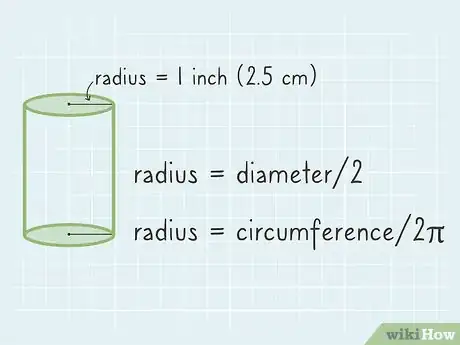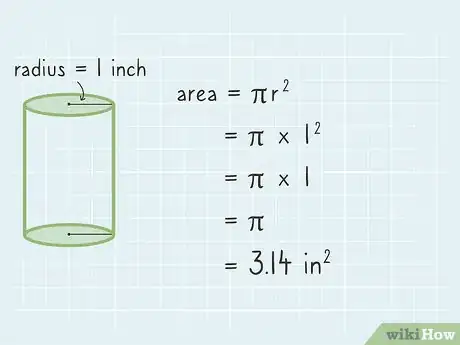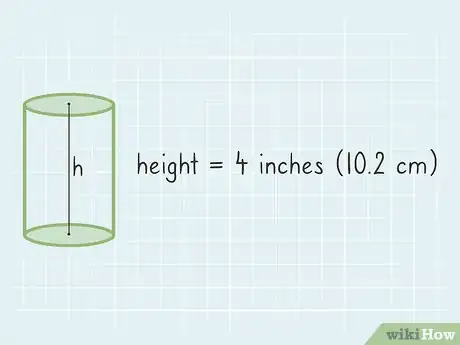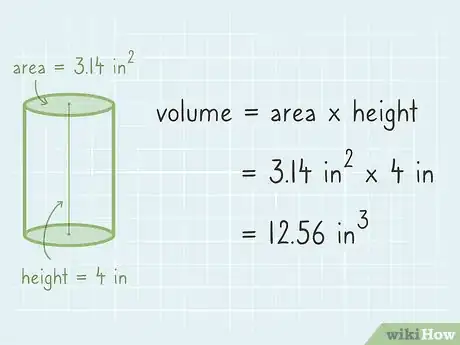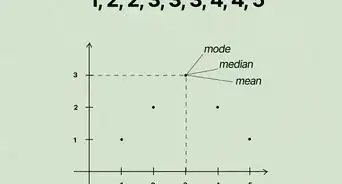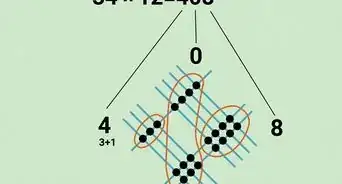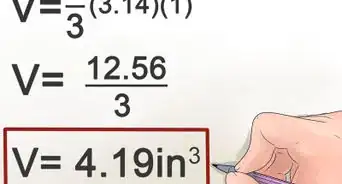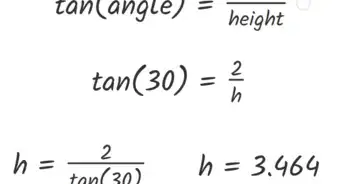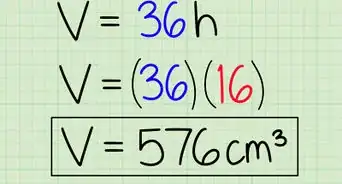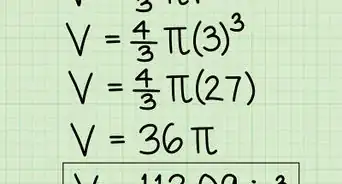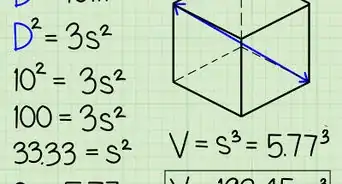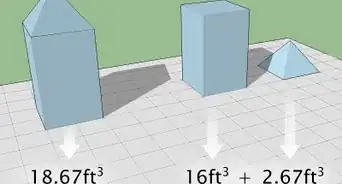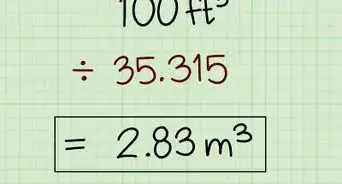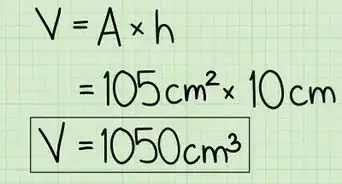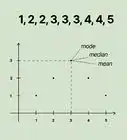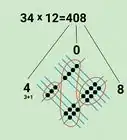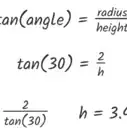This article was co-authored by Grace Imson, MA. Grace Imson is a math teacher with over 40 years of teaching experience. Grace is currently a math instructor at the City College of San Francisco and was previously in the Math Department at Saint Louis University. She has taught math at the elementary, middle, high school, and college levels. She has an MA in Education, specializing in Administration and Supervision from Saint Louis University.
There are 8 references cited in this article, which can be found at the bottom of the page.
This article has been viewed 3,694,169 times.
A cylinder is a simple geometric shape with two equally-sized and parallel circular bases. Calculating the volume of a cylinder is simple once you know the formula.[1]
Steps
Help Finding the Volume of a Cylinder
Calculating the Volume of a Cylinder
-
1Find the radius of the circular base.[2] Either circle will do since they are the same size. If you already know the radius, you can move on. If you don't know the radius, then you can use a ruler to measure the widest part of the circle and then divide it by 2. This will be more accurate than trying to measure half of the diameter. Let's say that the radius of this cylinder is 1 inch (2.5 cm). Write it down.
-
2Calculate the area of the circular base.[5] To do this, just use the formula for finding the area of a circle, A = πr2.[6] Just plug the radius you found into the equation. Here's how to do it:
- A = π x 12
- A = π x 1
- A = π
- Since π is normally rounded to 3.14, you can say that the area of the circular base is 3.14 in.2
Advertisement -
3Find the height of the cylinder.[7] If you know the height already, move on. If not, use a ruler to measure it. The height is the distance between the edges of the two bases. Let's say the height of the cylinder is 4 inches (10.2 cm). Write it down.
-
4Multiply the area of the base by the height.[8] You can think of the volume of the cylinder as the area of the base being extended throughout the height of the cylinder. Since you know that the area of the base is 3.14 in.2 and that the height is 4 in., you can just multiply the two together to get the volume of the cylinder. 3.14 in.2 x 4 in. = 12.56 in.3 This is your final answer.[9]
- Always state your final answer in cubic units because volume is the measure of a three-dimensional space.[10]
Community Q&A
-
QuestionHow do I calculate the length of the radius?
 Community AnswerThe radius is half of the diameter. If you know the diameter, just divide that by two to find the radius.
Community AnswerThe radius is half of the diameter. If you know the diameter, just divide that by two to find the radius. -
QuestionHow can I find a cylinder's volume when I know height and diameter?
 Community AnswerCalculate the area of the base (which is a circle) by using the equation πr² where r is the radius of the circle. Then, multiply the area of the base by the height of the cylinder to find the volume.
Community AnswerCalculate the area of the base (which is a circle) by using the equation πr² where r is the radius of the circle. Then, multiply the area of the base by the height of the cylinder to find the volume. -
QuestionHow do I calculate the volume of a water tank?
 Community AnswerMeasure the tank and calculate the volume like a normal cylinder. If it's irregularly shaped, just fill it with water until it's full, and however much water you filled it is its volume.
Community AnswerMeasure the tank and calculate the volume like a normal cylinder. If it's irregularly shaped, just fill it with water until it's full, and however much water you filled it is its volume.
References
- ↑ https://www.mathsisfun.com/definitions/cylinder.html
- ↑ Grace Imson, MA. Math Instructor, City College of San Francisco. Expert Interview. 1 November 2019.
- ↑ https://www.mathsisfun.com/definitions/radius.html
- ↑ https://www.mathsisfun.com/definitions/pi.html
- ↑ Grace Imson, MA. Math Instructor, City College of San Francisco. Expert Interview. 1 November 2019.
- ↑ https://www.khanacademy.org/math/basic-geo/basic-geo-area-and-perimeter/area-circumference-circle/v/area-of-a-circle
- ↑ Grace Imson, MA. Math Instructor, City College of San Francisco. Expert Interview. 1 November 2019.
- ↑ Grace Imson, MA. Math Instructor, City College of San Francisco. Expert Interview. 1 November 2019.
- ↑ https://www.mathopenref.com/cylindervolume.html
About This Article
1. Measure the circular base to get the diameter.
2. Divide the diameter by 2 to get the radius.
3. Calculate the area with the formula: A = πr^2, where r is the radius.
4. Measure the height of the cylinder.
5. Multiply the area by the height to get the Volume.


